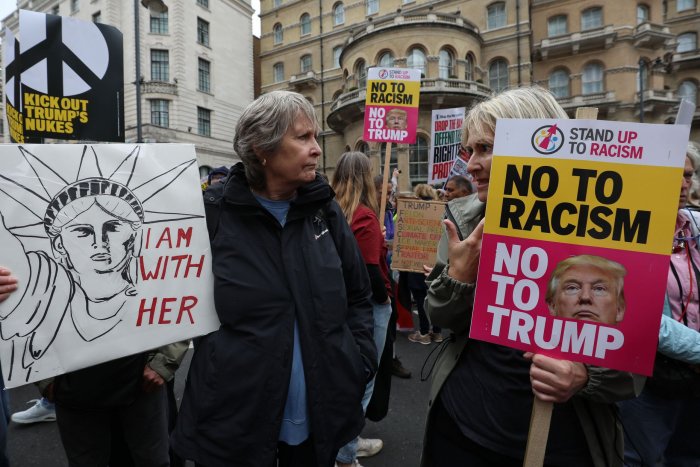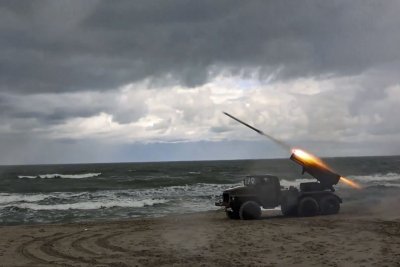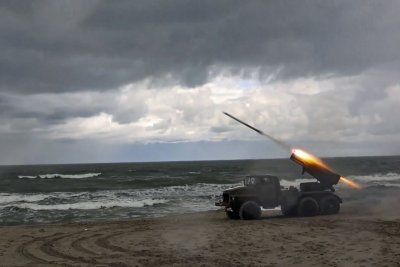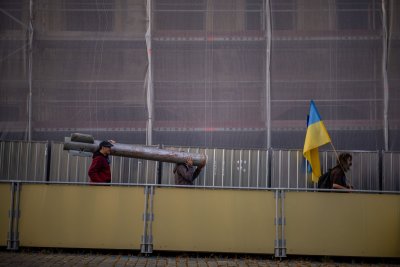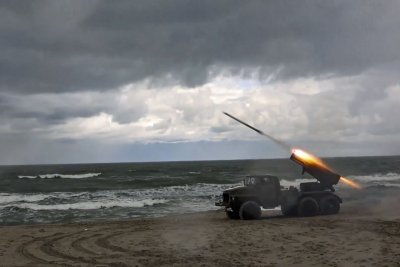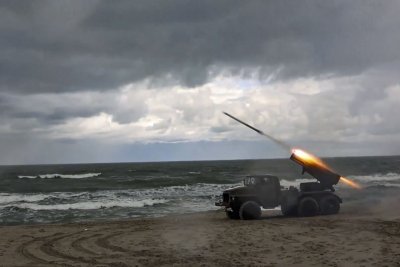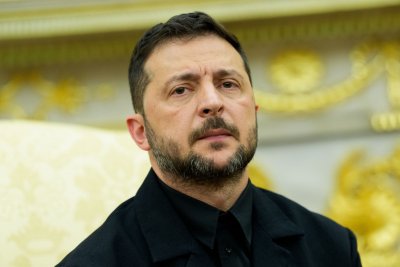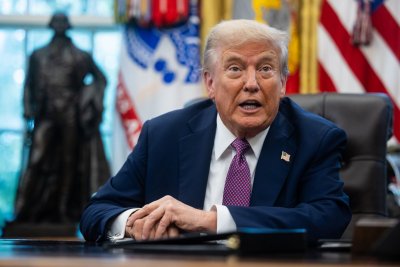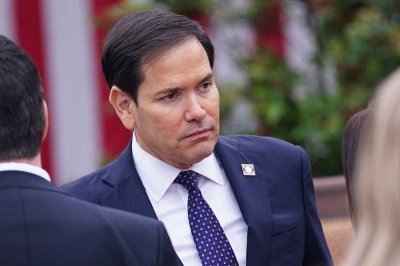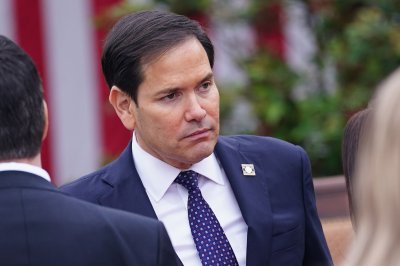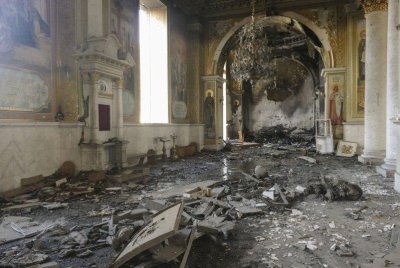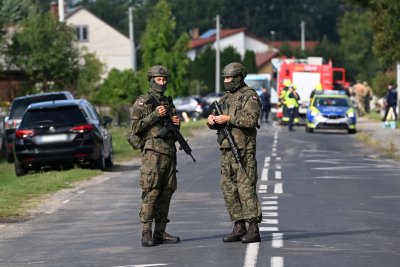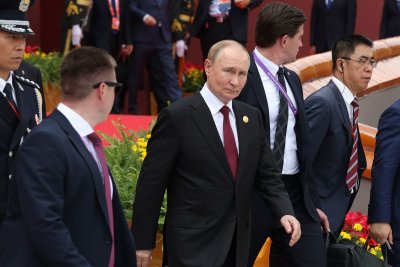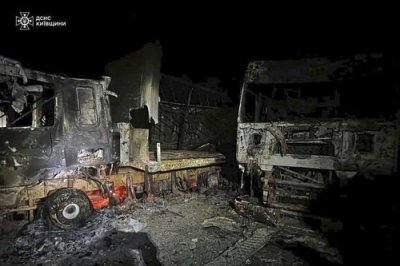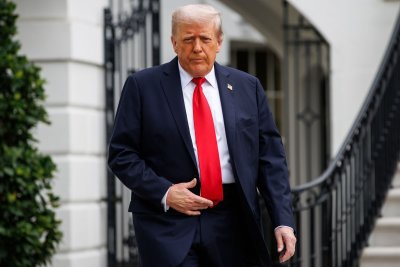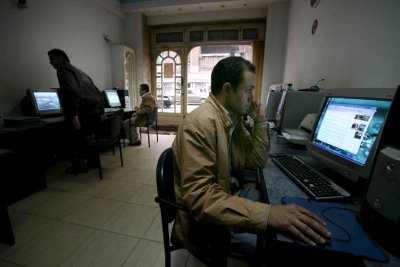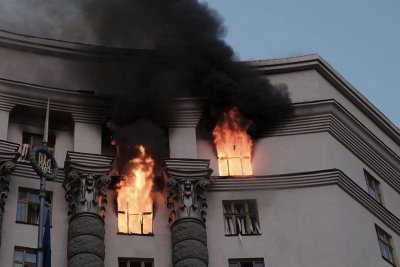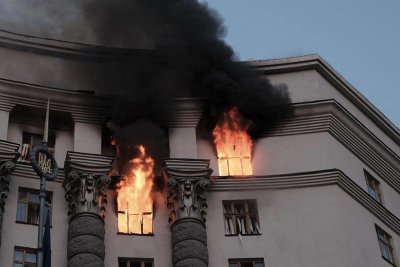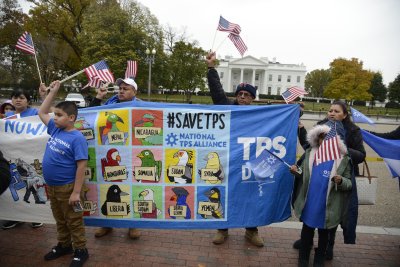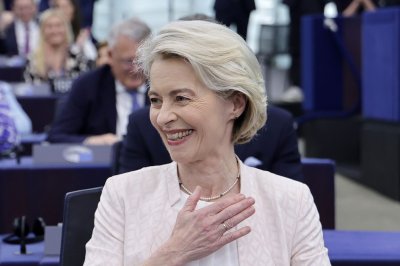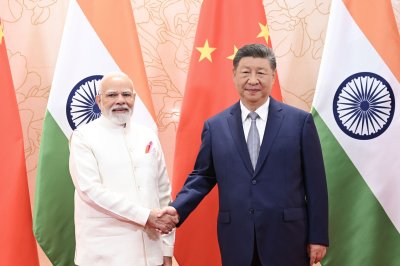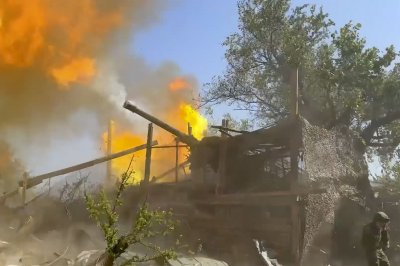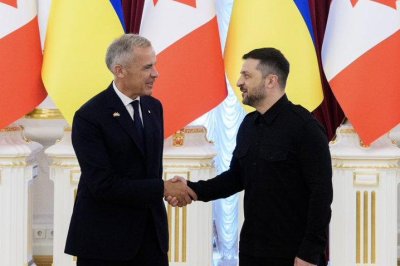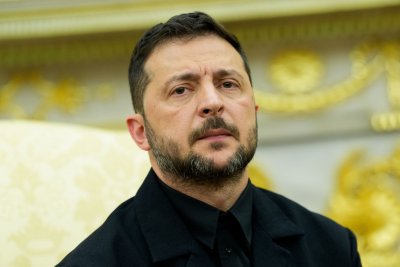Thousands fill London streets to protest Trump visit
Sept. 17 (UPI) — U.S. President Donald Trump‘s visit to England with King Charles III at Windsor Castle on Wednesday has sparked large protests in London and at Windsor.
Police estimated there were about 5,000 protesters at Parliament Square in London, and a smaller protest gathered outside of Windsor Castle.
Trump is unlikely to see the protests since most of his day and evening will be spent inside Windsor Castle. On Wednesday evening, the king and Queen Camilla will host a banquet, at which Charles and Trump are expected to give speeches. The king’s speech was written on the advice of the United Kingdom government, BBC’s Chris Mason reported.
The protests were organized by the Stop Trump Coalition, a group of more than 50 unions and charities.
Some protesters carried signs with slogans written across them, including “no to racism,” “no to Trump” and “stop arming Israel,” BBC reported. The 20-foot-tall Trump Baby blimp that greeted the president during his visit in 2019 has been made into smaller balloons that some protestors carried.
Metropolitan Police’s Deputy Assistant Commissioner Louise Puddefoot said police had been in close contact with the organizers and had asked them to be “considerate to the local community” and keep disruption to a minimum.
Before the march, a spokesperson for the coalition said: “A government that will bow down to Trump and to racism is one that will open the door to fascism.”
The protest groups said they would demonstrate to “defeat the politics of Trumpism” and to promote “an alternative, democratic vision of the world based on peace, social justice and international cooperation.”
The march ended at Parliament Square, and several people spoke on a stage. There was a performance by singer Billy Bragg, and speakers included former Labour Party members of Parliament Jeremy Corbyn and Zarah Sultana, comedian Nish Kumar and Green Party leader Zack Polanski.
Zoe Gardner, a political commentator and one of the organizers of the protest, said that the president “represents everything that we hate.”
“We want our government to show some backbone, and have a little bit of pride and represent that huge feeling of disgust at Donald Trump’s politics in the U.K.,” she said.
Auriel Dowty Glanville, a climate activist from Wimbledon, said she was demonstrating because climate change was “the biggest threat facing us on Earth.”
She said the government giving him a second state visit was “appalling,” saying, “It’s all about the trade deal.”
On Tuesday, four men were arrested for projecting large images and videos of Trump and sex trafficker Jeffrey Epstein on the walls of a turret at Windsor Castle. On Wednesday, as Trump toured the grounds and visited with the king, a van with a similar image was being driven around the castle, with the words, “Welcome to the U.K., Donald.” Police stopped the man and sent him on his way. He wasn’t arrested.
As the Trumps arrived via Marine One Wednesday morning, they were greeted by the Prince and Princess of Wales — William and Kate — and then by Charles and Camilla.
Britain’s Ministry of Defense described the ceremonial welcome as “unprecedented.”
The delegation was then taken on a carriage ride around the grounds of the castle. Trump and Charles rode in the gilded Irish Stage Coach. It’s the coach that Queen Elizabeth II used to travel to the State Opening of Parliament. The queen and first lady followed behind in the Scottish State Coach, which was built in 1830.
After the ride around the castle grounds, they went to the Quadrangle at the Castle to inspect the British Army Guard of Honor. The group of royals and American visitors then went inside for a private lunch.
The unprecedented nature of the visit is that second-term presidents don’t usually get state visits. Instead, they are invited for lunch or tea with the monarch. Former presidents Barack Obama and George W. Bush were treated to the usual protocol.
“This is really special. This has never happened before. Unprecedented,” said U.K. Prime Minister Keir Starmer said at the White House in February. “I think that just symbolizes the strength of the relationship between us.”
British officials understand that Trump admires the royal family, so “if you have those assets, that opportunity, then why not absolutely make the most of it,” Matthew Doyle, a former communications director and adviser for Starmer, told CNN.
The president will travel on Thursday to Chequers, the prime minister’s country house in Buckinghamshire, where talks will begin. Agreements on “tech and trade” are expected to be discussed, Doyle said. Trump and Starmer will also meet with tech CEOs.
Doyle said Britain also wants to hear that Trump has a “plan to get Russia to the table,” adding that “Ukraine is clearly the biggest issue on the foreign agenda” for this meeting.
